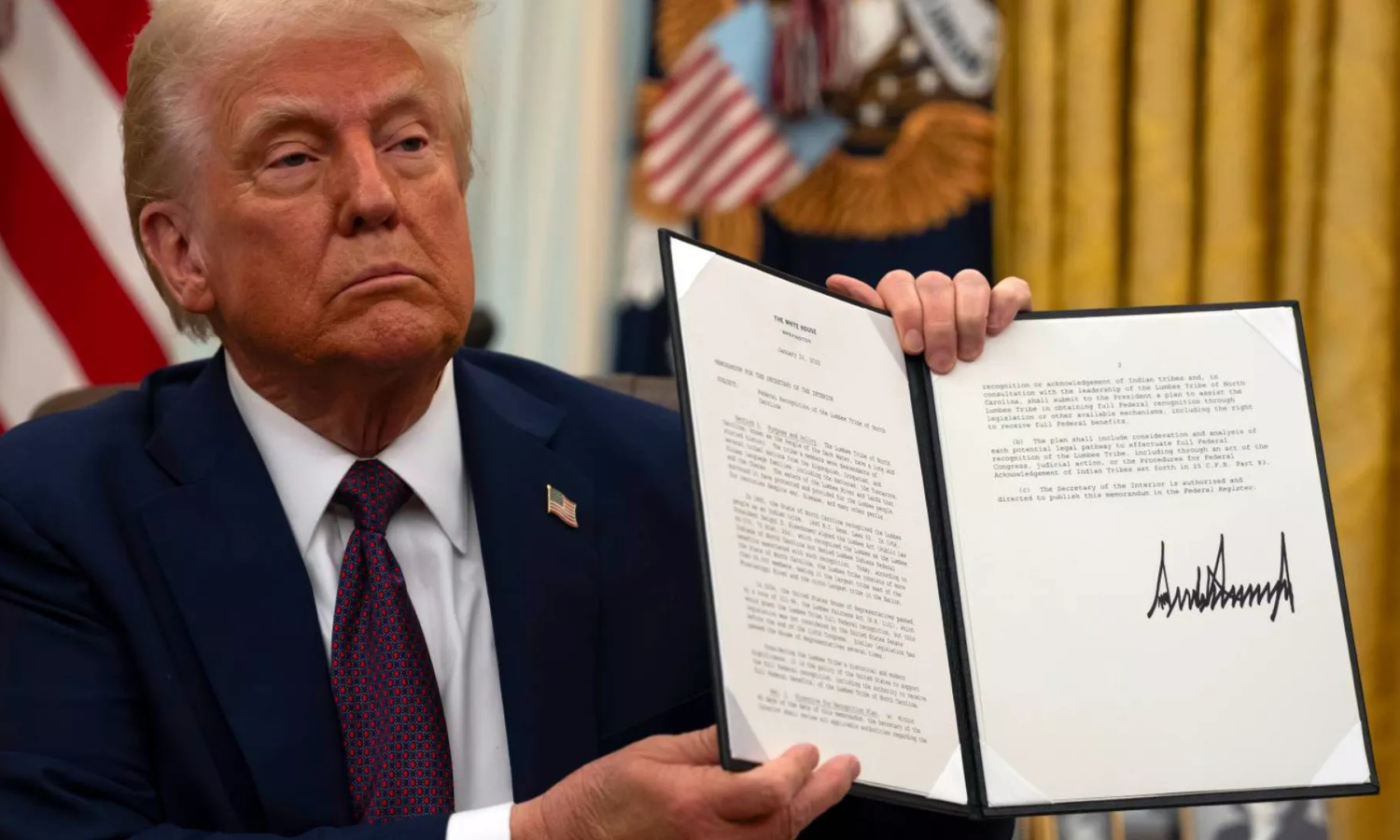The Supreme Court announced on April 17 that it will hear oral arguments regarding the constitutionality of President Trump’s executive order from ending birthright citizenship in the United States. The Supreme Court set the date of the oral arguments on May 15. The Court maintained three orders from Federal Judges who issued nationwide injunctions against the Trump Administration from enforcing the executive order until the oral arguments are heard and the Court’s opinion is issued. The court’s opinion is likely to be released around three months after oral arguments, according to ScotusBlog.
Trump’s executive order ending birthright citizenship, titled “Protecting The Meaning And Value Of American Citizenship,” argued that the right to birthright citizenship outlined in the Constitution does not apply universally to everyone born in the US. Furthermore, it implied that children of unlawful immigrants, such as those from the Southern border, are not constitutionally entitled to a US citizenship. During his presidential election campaign in 2024, President Trump promoted his promise to end birthright citizenship, which is viewed by many anti-illegal immigration advocates as causing a surge in illegal immigration by providing an incentive to cross the Southern border.
However, Trump’s executive order was immediately challenged and subjected to legal challenges as three lawsuits were filed against the executive order in district courts, causing further conflict. In early February, not long after President Trump signed the executive order, US District Judge John Coughenour, a Reagan judicial appointee, ruled against the Trump administration, issuing a nationwide injunction that prohibited the Trump administration from enforcing the executive order anywhere in the US. In Maryland and Massachusetts, Judge Deborah Boardman and Judge Leo Sorkin each respectfully issued nationwide injunctions. Boardman granted the request to immigrant advocacy groups and Sorkin granted immigrant advocacy to 18 states challenging Trump’s order.
On March 13, as a response to the nationwide injunctions and failed appeals, then-Acting Solicitor General Sarah Harris issued a request to the Court to put the judge’s orders on a hold and allowed the Trump administration to enforce the order with an exception of the plaintiffs in the lawsuits. Harris argued that the issuing of nationwide injunctions exceeds the constitutional authority of the judicial branch and inhibits the Executive branch to enforce its vested Article II powers. Judge Gorsuch, Thomas, and Kavanuagh have previously been skeptical of the constitutionality of nationwide injunctions as well.
The main constitutional question about the scope of birthright citizenship outlined in section 1 of the 14th Amendment is the original meaning of the word “jurisdiction.” The 14th Amendment’s Citizenship clause reads that “[a]ll persons born or naturalized in the United States, and subject to the jurisdiction thereof, are citizens of the United States and of the State wherein they reside.” This was added to the Amendment as a direct overruling of the Supreme Court’s 1857 case of Dred Scott v. Sanford. The current scholarly consensus, i.e the “mainstream” view is that the 14th Amendment guarantees birthright citizenship to virtually all children born in the United States.
However, many prominent constitutional scholars have dissented from this view. In The New York Times Editorial, Law Professors Randy Barnett and Ilan Wurman wrote an article titled “Trump Might Have a Case on Birthright Citizenship,” arguing that the word “jurisdiction” may not apply to children of illegal immigrants based on the “allegiance-for-protection” view of the word “jurisdiction.” Utilizing historical and legal evidence in the 19th-century, Barnett and Wurman argue that since illegal immigrants break US law Hence, they show no “allegiance,” causing their children to not be constitutionally entitled to birthright citizenship.
The Court’s ruling on the case, which is consolidated into three cases (Trump v. Casa, Trump v. Washington, Trump v. New Jersey), will likely rest on the different interpretations of the 14th Amendment from the Conservative bloc. The examination of the meaning of the Citizenship Clause of the 14th Amendment likely depends on use of Originalism, which seeks to find the original meaning of the Constitution. There exists strong Originalist arguments on both sides of the debate on the constitutionality of abolishing birthright citizenship, and there is certainly a strong expectation that the Supreme Court’s Conservative bloc will likely split on the correct interpretation.








